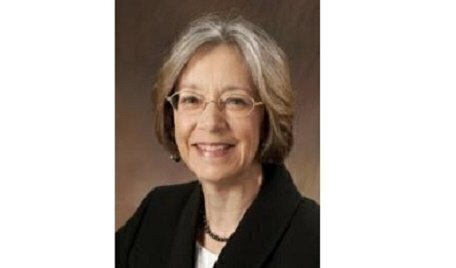For the first time, a federal appeals court has ruled that a 1964 civil rights law, as now understood, protects gay and lesbian employees from discrimination in the workplace based on their homosexuality. The Supreme Court has never ruled on the issue, but it is now likely to reach the Justices because of the split that the new decision on Tuesday created at the appeals court level.
 In an 8-to-3 decision, the full U.S. Court of Appeals for the Seventh Circuit declared that the main federal law against sex bias on the job – Title VII – outlaws discrimination based on sexual orientation. That result agrees with a position that the U.S. Equal Employment Opportunity Commission has held for the past two years; the commission had joined in urging the en banc Seventh Circuit to reach the decision it did.
In an 8-to-3 decision, the full U.S. Court of Appeals for the Seventh Circuit declared that the main federal law against sex bias on the job – Title VII – outlaws discrimination based on sexual orientation. That result agrees with a position that the U.S. Equal Employment Opportunity Commission has held for the past two years; the commission had joined in urging the en banc Seventh Circuit to reach the decision it did.
All of the other federal appeals courts that have ruled directly on the question have decided that Congress did not mean that the Title VII phrase – “discrimination on the basis of sex” – would apply to gays or lesbians on the job.
Since 1990, Congress has been asked repeatedly to write a new law extending Title VII as the new ruling did, but it has never passed such a measure.
The majority of the en banc Seventh Circuit Court spoke through three separate opinions, but the result was explicit and clear: a gay or lesbian worker has a legal right to pursue a claim that he or she was not hired, was not promoted, or was fired or otherwise was treated unequally because they were gay or lesbian.
Chief Judge Diane P. Wood (above), who wrote what is the lead opinion, stressed that the ruling did not deal with the newest legal claim being made under Title VII – that it also outlaws discrimination based on gender identity. That was an issue the Supreme Court was preparing to consider at its current term, but chose instead to send the case back to a federal appeals court after the Trump Administration had notified the Justices that it was abandoning the Obama Administration policy in favor of equal rights for transgender people. That is a Virginia case that involves the same phrase against sex discrimination, but in a different civil rights law – Title IX, dealing with education.
Judge Wood also noted that the decision did not resolve how Title VII should be interpreted in a sexual orientation case involving a religious employer or one in the public sector. Thus, the ruling spelled out Title VII only for such claims by private sector employees.
The result in favor of a broader reading of the 1964 law was based upon the majority’s view that the Supreme Court, especially in decisions in 1989 and 1998, had said that the law might actually provide greater protection as time goes on and circumstances change, even though the language of the law remained the same.
Judge Wood also relied in part upon a wide interpretation of the Supreme Court’s 1967 ruling in Loving v. Virginia, permitting interracial marriage, and on a series of more recent decisions by the Justices broadening gay rights – including the ruling two years ago in favor of same-sex marriage.
The ruling cleared the way for a lesbian who was a part-time teacher at a community college in Indiana to pursue her Title VII claim that she was repeatedly turned down for a full-time position because she was a lesbian. The teacher, Kimberly Hively, was an adjunct faculty member on the South Bend campus of Ivy Tech Community College, which has 32 locations in the state.
Although eight judges of the Seventh Circuit Court joined in all or major parts of the chief judge’s lead opinion, Circuit Judge Richard A. Posner and Circuit Judge Joel M. Flaum (joined by Circuit Judge Kenneth F. Ripple) used different reasoning to support the same outcome.
Circuit Judge Diane S. Sykes – who was on one of President Trump’s lists of potential nominees for the vacant seat on the Supreme Court – wrote the dissenting opinion, joined by Circuit Judges William J. Bauer and Michael S. Kanne.
The dissenters argued that the majority was simply inventing a new meaning for the 1964 law, substituting its own preference for the way Title VII was written and had long been understood.
Tuesday’s decision overturned a ruling by a three-judge panel of the Seventh Circuit Court, which said it was bound by earlier circuit precedents excluding sexual orientation claims from the law’s coverage. Because the new decision was issued by the en banc Seventh Circuit Court, any appeal from it by the college would go next to the Supreme Court. For now, the school has said it won't appeal.
Legendary journalist Lyle Denniston is Constitution Daily’s Supreme Court correspondent. Denniston has written for us as a contributor since June 2011 and has covered the Supreme Court since 1958. His work also appears on lyldenlawnews.com, where this story first appeared.







